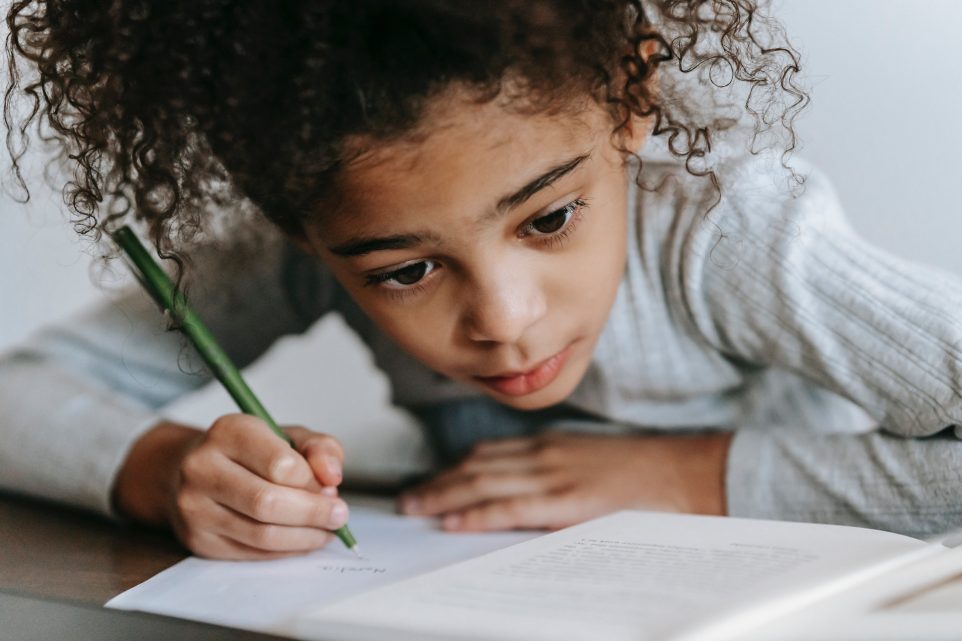Do you find enjoyment in reading books? Would you rather look at the instructions before starting to build something? Are essays your forte? If so, you’re probably a read/write learner.
Woven in among all the students who dislike school, there are some who actually enjoy it. Since teachers usually appeal to the read/write learning style, read/write learners are often the ones who like school the most. So, if you’re a read/write learner, hooray! You’re less likely to encounter difficulty in the standard schooling model. However, as schools begin to accommodate the needs of visual, auditory, and kinesthetic learners, read/write learners will need to work on those learning styles as well.
Read/Write Learner Superpowers
As a read/write learner, you’re naturally skilled at the following:
- Following written instructions
- Understanding and responding to written information (essays, novels, short stories, etc.)
- Taking notes and using notes to study for tests
- Writing essays and completing other English assignments
- Effectively using dictionaries, thesauruses, and textbooks
Each of these skills is incredibly useful and will help you succeed in school and beyond. After all that reading you’re bound to do, make sure you share some of the info you discover with the rest of us!
Read/Write Learner Strategies
Read/Write learners generally perform well in school, but that doesn’t mean you can’t benefit from some tips as well. Try some of the following to make the most of your learning style:
- In the classroom, write all of the notes verbatim; then, when you get home, rewrite the notes in your own words (every time you write the notes, you’re doing your brain a favour!)
- When you rewrite your notes, label them with subheadings and 1. 2. 3. or a) b) c) etc. to make them more organized
- When the teacher does a physical demonstration, watch what they do and write down the specifics of each step
- If you are given a chart or a diagram, translate the figure into descriptive words so you can more easily remember it
- If you have to watch a video, watch it with subtitles so you can read along while you listen, and write down the important parts
There are many great strategies available to read/write learners, and these are but a few. The key is repetition; that is, reading and rereading and writing and rewriting everything. The more you do it, the more success you’ll have!
A Picture is Worth a Thousand Words, but if You Prefer Words…
…then write a thousand of them! As a read/write learner, it’s in your best interest to write a lot. While other types of learners might find it helpful to use pictures or audio for memorization, your read/write brain is perfectly content to have you write everything down and read it later. The best thing you can do is develop a personalized note-taking system that works for you, take your notes using that system, and refer back to them often.
This advice works wonders within the classroom, but it can be useful outside of school as well. Let’s say you’re reading a book at home, either for a school assignment or for your own pleasure. You’ll want to remember what you read so you can respond to the text in an essay or a conversation. As a read/write learner, simply reading the text is doing your brain a favour, but you can go a step further. If you come across a particularly impactful sentence or passage, write it down (in full) on a scrap piece of paper. Then you can branch off of that transcribed piece with notes detailing your thoughts about it. This works way better than highlighting words (which doesn’t actually help with memory) and will allow you to more meaningfully engage with what you read. Once you start doing this regularly, you’ll be able to quote your favourite books and recognize famous lines like those mysterious poetic types!
Become a Well-Rounded Read/Write Learner
It would be great if you could submit a piece of writing for every assignment, but sometimes that isn’t the case. There will come a time when you need to participate in a hands-on lab or demonstrate your math knowledge using algebra tiles. In these scenarios, it’s important to be in touch with the visual, auditory, and kinesthetic learning styles.
In addition to writing everything down and reading lots, appealing to the auditory learning style and saying things out loud as you read and write can help with memory retention. Any conscious act, speaking included, forges new pathways in your mind and tells your brain that what you’re doing is worth remembering. The more ways you can engage your brain, the better!
Don’t be afraid to ask for help! One of the best ways to develop your weak spots is to partner up with people who are naturally inclined toward art or working with their hands, for example. You can complement each other’s skills and learn a lot from each other in the process. If you’d rather enlist professional assistance, private tutors are great at appealing to each of the learning styles. They can help you hone your read/write habits and aid you in acquiring new strategies from the other learning styles as well.
Adopt a Love of Learning for Life
Learning takes place at school, but school is not the definition of learning. At Tutoring…With a Twist*, we recognize that not every student will love school, but every student should love learning. We’re committed to helping our students discover their love of learning so they can develop the skills they need to live the life they want. We’re happy to lend a hand, no matter what your learning style is. Feel free to contact us today—we’d love to hear from you!
*Services provided by With a Twist Education Ltd.


Comments 2
I am a read/write learner but I find it very difficult remembering at times.
Author
With time, you may remember :)!